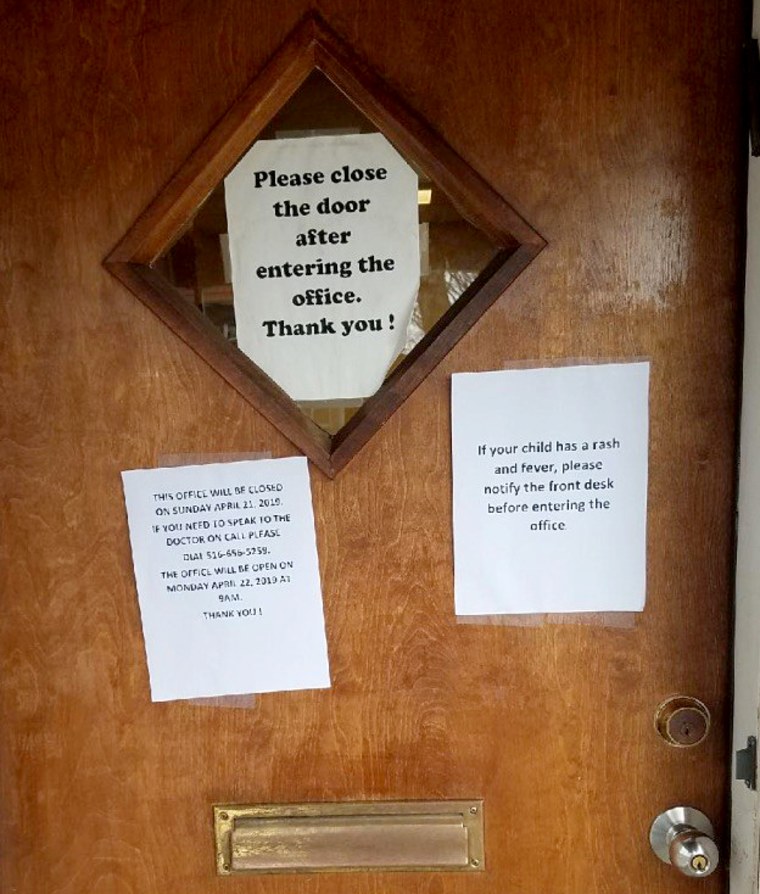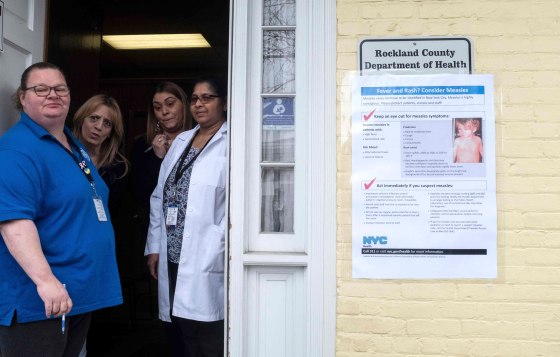Outbreaks in New York state continue to drive up the number of U.S. measles cases, which are approaching levels not seen in 25 years.
Health officials say 71 more cases were reported last week, with 68 of them from New York. That brings this year's total to 626 in 22 states as of April 19. The Centers for Disease Control and Prevention released the latest numbers Monday.
Iowa and Tennessee were the two states that joined the CDC list with new measles cases.
This is the most cases seen since 2014, when 667 were reported for the whole year. The most before that was 963 cases in 1994.
Dr. Steven J. Goldstein, a pediatrician in Brooklyn whose office is in the epicenter of the measles outbreak, says the measles outbreak is putting a strain not only on families, but also the doctors who treat them.
"When there is a child in your practice with measles or it turns out the child has measles later, you have to close the office and investigate; you have to contact everybody who was in the practice at or around the time of exposure. Everyone needs to be notified about that possible exposure," said Goldstein, who is president of the New York Chapter 2 of the American Academy of Pediatrics.

Goldstein added that he has to check every patient with a fever or rash before they come in to make sure they don't have measles since the virus is highly contagious.
"Measles, which is fully preventable with a vaccine, puts such a burden on pediatric care. The implications of this are huge for the city, the state and the country," Goldstein told NBC News.
Twenty-two states have reported cases, but the vast majority have been in New York — mainly in New York City and in nearby Rockland County. Most of the New York cases have been unvaccinated people in Orthodox Jewish communities.
After an outbreak of measles in Rockland County, officials there issued a temporary 30-day ban on unvaccinated children from public gathering spaces. The controversial policy was seen as aggressive, but resulted in at least 700 additional mumps, measles and rubella vaccinations through free clinics, according to the county's Department of Health.
Goldstein says the New York State Department of Health is recommending that parents vaccinate their babies earlier, at six months to protect themselves from the virus during the outbreak. The normal MMR vaccination schedule is for a first dose at 12 to 15 months and a second dose at 4 to 6 years old, according to the CDC.
But many time parents have been slow to receive the early vaccine Goldstein noted.
"It's not always that parents are anti-vaccine. Parents need information and the department of health has provided us with a very good booklet highlighting these new changes that we are using to get the word out," Goldstein said.


